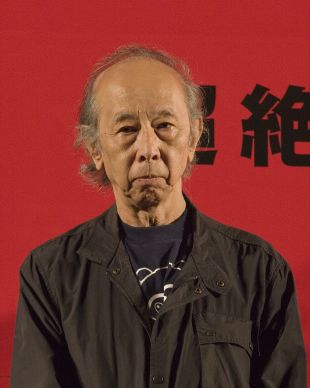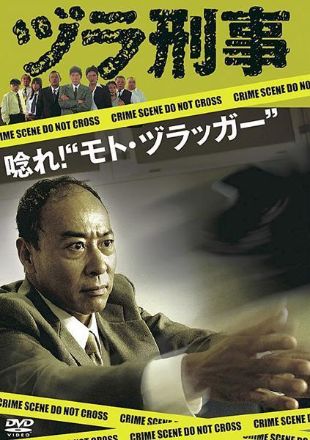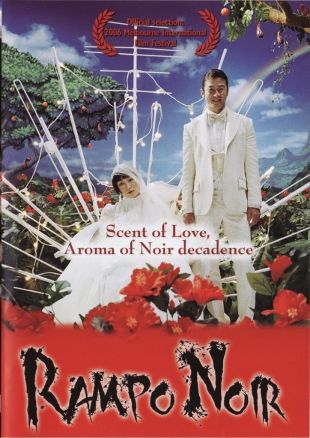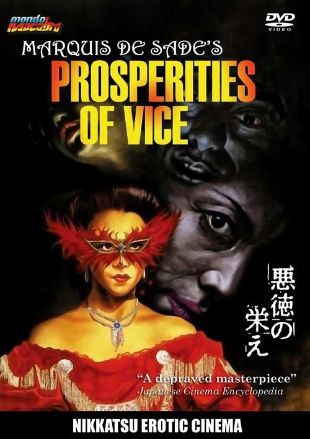The whirlwind Japanese Renaissance director Akio Jissoji launched himself with equal force as a helmer of massive, glossy, effects-laden studio products and an author of intimate, finely crafted arthouse films. His body of work in the second category remains largely unknown outside of Asia, and thus eagerly awaits Western discovery. Born around 1937, Jissoji attended the private post-secondary institution Waseda University as a young man, where he surrounded himself with budding filmmakers and film critics, and wrote lengthy, complex articles on the history, evolution, and theory of French cinema. Immediately after his 1959 graduation, Jissoji accepted a position with the Tokyo Broadcasting System -- one of the largest networks in Japan -- and worked his way up to director of several television series by 1961.
As a helmer, Jissoji drew heavily on his knowledge of (and insights into) French cinema, and tried to incorporate Nouvelle Vague principles into his work. He transferred to TBS's feature-film department by 1965, where he began work on two wildly popular film series, Ultraman and Ultra Seven -- collaborations with special-effects master Eiji Tsuburaya. These works culled a massive following that spread to multiple continents; in fact, the Ultraman series remain Jissoji's best-known endeavor in the U.S. to this day. Clearly inspired by the work of such directors as Ishiro Honda, Ultraman unfolds in a future dystopian realm where the sanctity of Earth is threatened by evil aliens and giant Godzilla-style monsters. The titular protagonist is a "superpowered giant from space" who counters the aggressors.
Around 1969, Jissoji abandoned TBS and incorporated his own production company with the financial sponsorship of the prestigious Art Theater Guild. He then switched gears entirely and began to painstakingly craft multilayered art films, with subjects comparable to those of Yasujiro Ozu and Kenji Mizoguchi, that transported Jissoji a world away from the apocalyptic battles of Ultraman. The first of these efforts, 1970's Mujo (aka This Transient Life), is a finely wrought drama about the incest that transpires between a young Buddhist sculptor and his sister. It netted first prize at that year's Locarno Film Festival. Many similar works by Jissoji (largely chamber dramas with a marked emphasis on eroticism and spirituality) emerged throughout the 1970s, and occasionally during the '80s and '90s, such as La Valuse (1990), a study of a rape trial from several perspectives that, structurally and conceptually, suggests more than passing influence by Kurosawa's Rashomon.
Jissoji, however, reverted to sci-fi action again in 1979 with a new Ultraman feature film, and in 1988 with Tokyo: The Last Megalopolis (aka Teito Monogatari), the tale of a seemingly omnipotent samurai warrior who wields destruction over Tokyo. Around the mid-'90s, Jissoji acquired a fascination with traditional mystery, and explored this fixation in several big-screen adaptations of works by the Japanese author Edogawa Rampo, known for his gothic suspensers. These include Yaneura no Sanposha (aka A Watcher in the Attic, 1994), and D Zaka no Satsujin Jiken (aka A Murder on D Street, 1997). Jissoji helmed his swan song, Silver Kamen (aka Silver Mask), shortly prior to his death. The studio slated it for release in Japan in December 2006. The director adapted this episode film from a popular televised space opera of the same title that he created in the early '70s. Jissoji died of stomach cancer, in Tokyo, Japan, on November 29, 2006. In addition to his film work, Jissoji spent over 40 years directing stage plays, operas, and music concerts.



